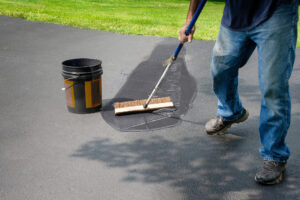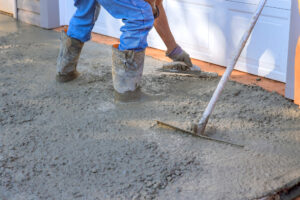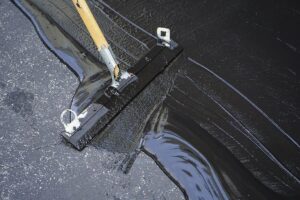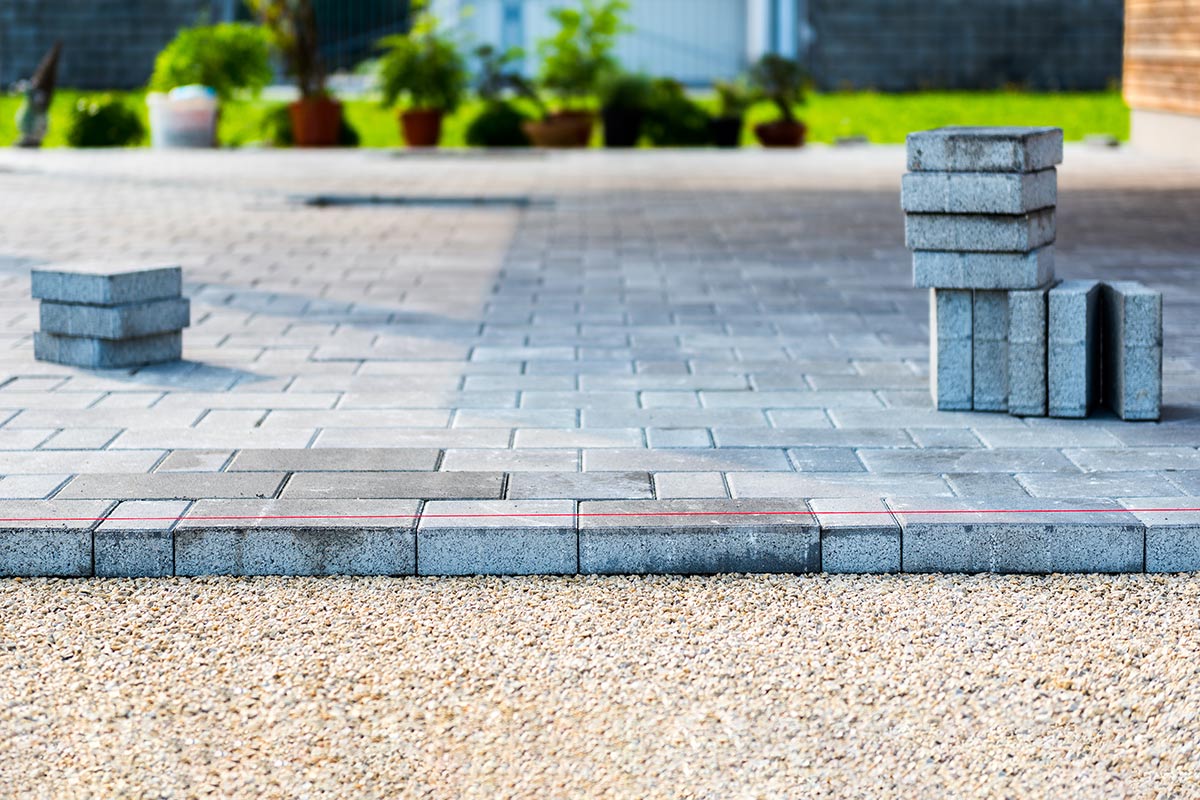
Types of Driveway Pavers
Compared to paved concrete and asphalt driveways, driveway pavers offer a unique and appealing look for your home. They can increase your home’s curb appeal and are durable enough to bear the weight of cars. Plus, they require little maintenance and are easy to repair. However, they are more expensive than paved options. The price for the cheapest pavers starts at around $10 to $15 per square foot, while an asphalt or concrete driveway can cost as low as $3 to $8. Discover more about the advantages and disadvantages of driveway pavers, the various types available, how to choose the right fit for your needs, and the necessary steps for installation.
What Is a Driveway Paver?
Pavers are flat slabs or blocks that are connected or interlocked to create even surfaces for driveways, walkways, patios, and pool decks. These blocks can be made of different materials, including concrete, clay bricks, natural stone like flagstone or granite, and rubber.
To build a driveway with pavers, you can choose from materials like brick, concrete, stone, or a permeable surface. However, it’s important to start with a solid base made of compacted gravel and sand.
Pros and Cons of Driveway Pavers
Driveway Paver Pros
Pavers have several advantages in terms of how they look, how long they last, and how easy they are to maintain.
- Durable, long-lasting, and weather resistant: The ideal pavement should be durable and not easily break. It should also be easy to repair or replace individual pavers if needed. Additionally, it should be able to withstand weathering and climate changes better than a regular paved driveway.
- Curb appeal: A home renovation can enhance the look and feel of your house by providing multiple options for materials, colors, and designs, which in turn can increase the overall value of your property if executed properly.
- Environmentally conscious: Using eco-friendly materials such as bricks and stones can help the environment because they are recyclable and reusable. Also, allowing rainwater and other types of runoff to infiltrate into the ground is beneficial.
- Low-maintenance: You can apply a one-time protective sealer to prevent stains and wear on it, and it is also easy to clean.
- Some are less hazardous: If your driveway has a slope, it's important to consider that poured concrete can be slippery in wet, icy, or snowy conditions. You may find that certain brick and stone pavers offer better traction.
- Doesn't require curing: A poured concrete or asphalt driveway needs to dry for one week before it can be used.
Driveway Paver Cons
The drawbacks of driveway pavers could be significant enough to prevent you from choosing them.
- Installation time: Compared to concrete or asphalt driveways, paver driveways can be used right away without waiting for drying or curing time, even though they take a little longer to install.
- Cost: Driveways made of either poured or paved materials are less expensive. On average, installing an asphalt driveway costs between $3 to $5 per square foot and can last for 12 to 20 years when maintained properly. Meanwhile, installing a concrete driveway is more expensive, averaging around $6 per square foot nationally, but can last up to 40 years with good maintenance.
- Weeds: Weeds may grow in the gaps between pavers if they are not sealed correctly.
- Replacement pavers might not match: To ensure a uniform look, it's advisable to purchase extra pavers when installing your driveway in case you need to replace any in the future. Keep in mind that even with extra pavers, replacements may not perfectly match the weathered look of the rest of the driveway.
Types of Driveway Pavers
Brick Pavers
Brick pavers are made by molding and baking clay, with a strength rating of approximately 12,000 pounds per square inch, making them a strong choice. Although brick pavers can last for several decades, they are still susceptible to weather and wear and can flake or deteriorate over time. Fortunately, replacing one or two bricks is simpler and cheaper than replacing the entire driveway. With maintenance, a brick paver driveway can last for over 25 to 30 years.
- Recommended for: Withstands heavy car weights and is highly durable. Price is between $10 and $30 per square foot, including materials and labor.
Concrete Pavers
Using concrete pavers that resemble bricks is a commonly chosen solution for driveway paving. Concrete pavers can last up to 50 years, which is longer than clay bricks. Although not as sturdy as brick pavers, concrete pavers can handle regular use with an 8,000 pounds-per-square-inch strength rating. Compared to solid concrete slabs, concrete paver driveways are sturdier.
- Ideal for: Most cost-effective option, particularly for bigger driveways; offers a variety of patterns and shapes. Price Range: The cost is between $10 to $40 per square foot, which includes materials and labor.
Stone Pavers
Cobblestones are a durable type of paving material made from natural quarried stone. They are typically made of granite or basalt and can last for over 100 years. While other natural stones like limestone, granite, slate, flagstone, and bluestone can also be used for driveways, it’s important to note that limestone, flagstone, and fieldstone may crack under high traffic or car traffic and are not recommended for these areas.
Although cobblestone driveways are visually appealing, their surface is quite rough, which makes them less versatile. For instance, playing basketball on a cobblestone driveway is difficult. Additionally, shoveling snow can be troublesome as natural stone is not completely flat.
- Recommended use: Adding decorative appeal, enhancing curb appeal; cobblestones are highly durable.
- Cost: Cobblestones typically cost between $40 and $70 per square foot, which includes both materials and labor.
Permeable Pavers
If you care about the environment, consider using permeable pavers. These pavers are both attractive and designed to allow for drainage. They let water seep into the ground beneath them, instead of accumulating on top. By doing so, they prevent pooling and the creation of toxic waste, which might otherwise contaminate sewer systems. Additionally, they are durable and resistant to shifting and other weather-related damage.
- This option is environmentally friendly and cost-effective, and will cost between $10 and $30 per square foot, including both materials and labor.
How to Choose a Driveway Paver
When selecting a driveway paver for your project, there are several factors to consider including:
- Size of the project: What is the total area you need to pave? The cost of the project will be influenced by this factor. Additionally, it's important to keep your budget in mind when selecting pavers. You should consider the long-term durability and maintenance costs when evaluating the price of each option.
- Maintenance and durability: Are you willing to dedicate time to DIY sealant projects for your home and perform regular maintenance on your driveway? For instance, while brick may be more expensive initially, it doesn't need to be resealed every two years like a poured concrete driveway. Additionally, if you're thinking about a permeable driveway that allows grass to grow in between, keep in mind that you'll need to trim the grass regularly.
- Aesthetic:When selecting a driveway, consider the design details of your home to ensure that it complements your overall aesthetic. Look at the colors and lines in your home's architecture for inspiration.
- Weathering and erosion: If you live in a place with cold winters, cobblestones are very strong but difficult to shovel. Bricks and concrete pavers are good for handling the weather, but they can be affected by freeze-and-thaw which may cause the pavers to expand and contract or loosen the bricks. Pavers are still a better choice when compared to poured asphalt or concrete because they are less likely to crack, which can be more expensive to fix.
- Environmental concerns: Is your driveway sloped and causing water to pool? Are you interested in having a permeable driveway that allows the water to soak into the ground? Permeable driveways can help alleviate sewer and storm drain problems in your community and replenish the natural water table.

